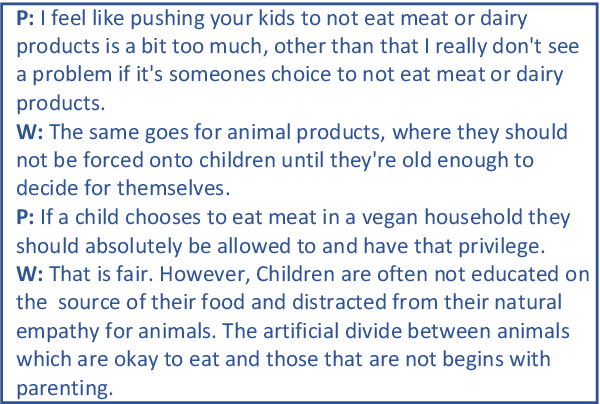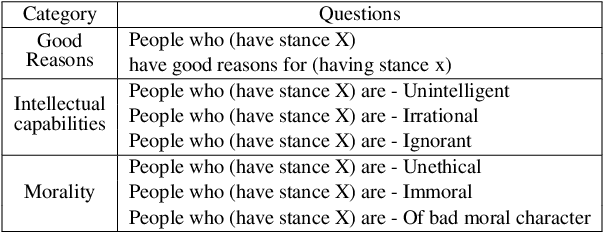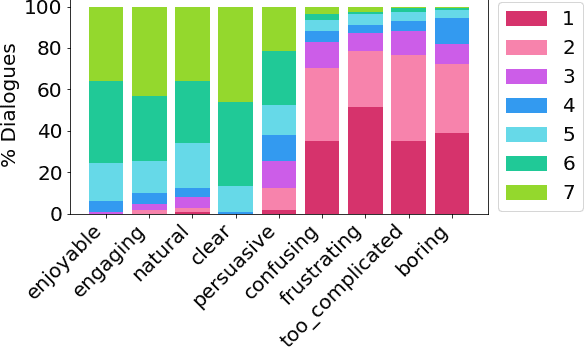Opening up Minds with Argumentative Dialogues
Paper and Code
Jan 16, 2023



Recent research on argumentative dialogues has focused on persuading people to take some action, changing their stance on the topic of discussion, or winning debates. In this work, we focus on argumentative dialogues that aim to open up (rather than change) people's minds to help them become more understanding to views that are unfamiliar or in opposition to their own convictions. To this end, we present a dataset of 183 argumentative dialogues about 3 controversial topics: veganism, Brexit and COVID-19 vaccination. The dialogues were collected using the Wizard of Oz approach, where wizards leverage a knowledge-base of arguments to converse with participants. Open-mindedness is measured before and after engaging in the dialogue using a questionnaire from the psychology literature, and success of the dialogue is measured as the change in the participant's stance towards those who hold opinions different to theirs. We evaluate two dialogue models: a Wikipedia-based and an argument-based model. We show that while both models perform closely in terms of opening up minds, the argument-based model is significantly better on other dialogue properties such as engagement and clarity.
 Add to Chrome
Add to Chrome Add to Firefox
Add to Firefox Add to Edge
Add to Edge